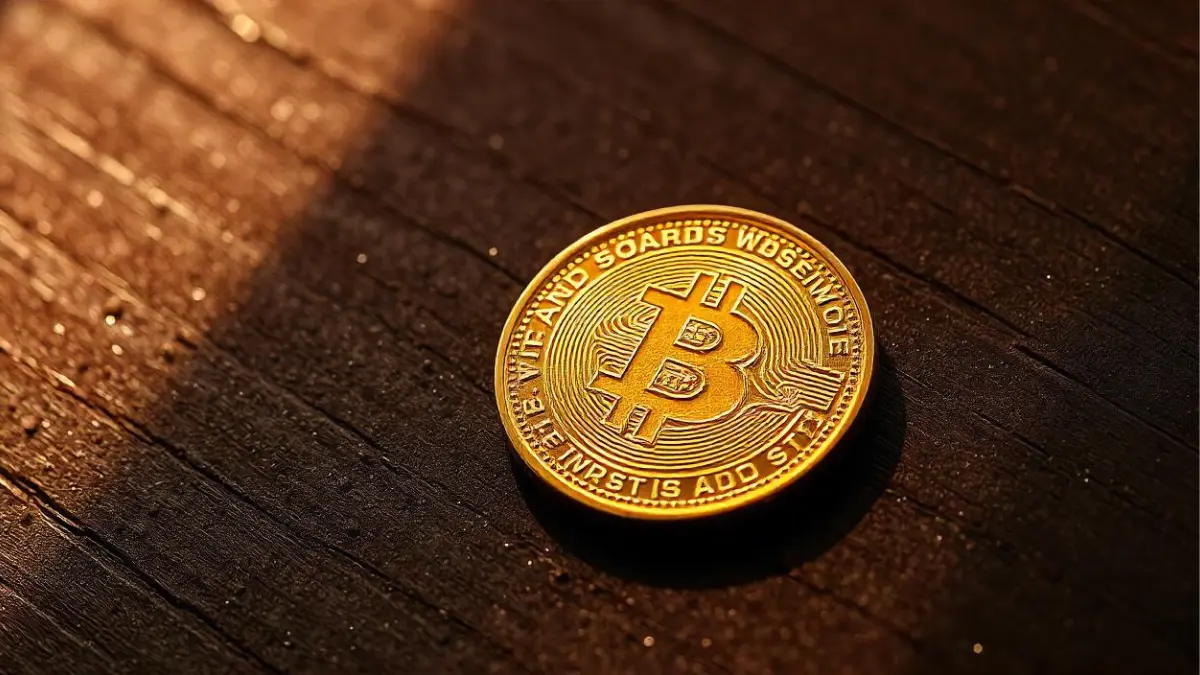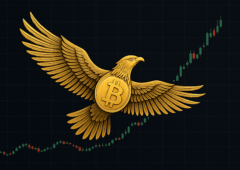Swedish Lawmaker Urges Bitcoin Reserve Strategy Without Taxpayer Spending
13.04.2025 16:30 2 min. read Alexander Stefanov
Swedish lawmaker Rickard Nordin has put forward a provocative question to the country's finance minister: should Sweden consider keeping Bitcoin in its reserve portfolio?
In a formal request to Finance Minister Elisabeth Svantesson, Nordin urged the government to weigh the potential of digital assets in national fiscal strategy, especially as international discourse around Bitcoin continues to grow.
Nordin highlighted how some U.S. states and officials have already floated the concept of treating Bitcoin like a digital version of gold—particularly relevant during times of economic instability and geopolitical tensions. He emphasized Bitcoin’s usefulness not just as an investment, but as a tool for preserving value, especially in countries with repressive regimes.
Instead of advocating for Sweden to buy Bitcoin outright, Nordin proposed a cost-free method: hold on to any BTC seized by authorities, rather than selling it off. He pointed to the United States, where agencies like the DOJ and IRS have accumulated large amounts of cryptocurrency through asset seizures—without spending public money to acquire it.
Sweden’s central bank, Sveriges Riksbank, currently sticks to conventional assets like foreign currencies and gold in its reserve strategy. Nordin believes this conservative stance should be reexamined, given the changing landscape of financial tools.
The inquiry, officially listed as 2024/25:997, requires a formal answer from the finance minister by April 16. So far, the ministry hasn’t provided any public response.
This development reflects a broader trend: while countries like El Salvador have gone all-in on Bitcoin, more developed economies are still figuring out how—if at all—digital assets fit into their financial systems. Nordin’s suggestion could offer Sweden a middle path: integrating Bitcoin into state reserves through asset retention, without committing taxpayer funds.
-
1
Bitcoin Nears Key Support Levels Amid Growing Market Uncertainty
10.06.2025 18:00 1 min. read -
2
Strategy’s Michael Saylor Says Bitcoin’s Volatility Era Is Over
13.06.2025 8:00 1 min. read -
3
Quantum Computing Won’t Kill Bitcoin, Says Michael Saylor
10.06.2025 12:00 1 min. read -
4
Bitcoin on the Edge: Why One Veteran Trader Sees a 75% Plunge
11.06.2025 13:00 1 min. read -
5
Bitcoin Struggles as Selling Pressure Mounts Amid Geopolitical Turmoil
13.06.2025 15:00 2 min. read
Strategy Boosts Bitcoin Holdings to 597,325 BTC with Latest Purchase
Bitcoin giant Strategy has added another 4,980 BTC to its reserves in a purchase worth approximately $531.9 million, according to Executive Chairman Michael Saylor.
Veteran Trader Peter Brandt Shares Simple Wealth Strategy with Bitcoin at Its Core
According to renowned market veteran Peter Brandt, trading isn’t the path to prosperity for the vast majority of people.
Why Bitcoin Is Stuck Despite Wall Street Demand
Charles Edwards, founder and CEO of Capriole Investments, has offered a fresh perspective on Bitcoin’s stalled price movement near the $100,000 mark, despite growing institutional enthusiasm.
Metaplanet Now Holds 13,350 BTC Worth $1.4 Billion
Metaplanet has expanded its Bitcoin treasury with a new acquisition of 1,005 BTC valued at approximately $108.1 million, further cementing its status as one of the largest corporate holders of the digital asset.
-
1
Bitcoin Nears Key Support Levels Amid Growing Market Uncertainty
10.06.2025 18:00 1 min. read -
2
Strategy’s Michael Saylor Says Bitcoin’s Volatility Era Is Over
13.06.2025 8:00 1 min. read -
3
Quantum Computing Won’t Kill Bitcoin, Says Michael Saylor
10.06.2025 12:00 1 min. read -
4
Bitcoin on the Edge: Why One Veteran Trader Sees a 75% Plunge
11.06.2025 13:00 1 min. read -
5
Bitcoin Struggles as Selling Pressure Mounts Amid Geopolitical Turmoil
13.06.2025 15:00 2 min. read


